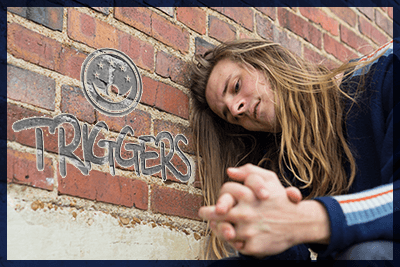Heroin Addiction Facts, Statistics & Recovery Rates
While most people are aware that there is a problem with heroin abuse and addiction in the US, some people still don’t know what heroin actually is and why it is such a problem. As a result, many myths and misunderstandings have built up around the origin of the drug, what it does in the body, who uses and abuses it, and how addiction forms.
Like many drugs of abuse, heroin has specific actions in the brain and body that can cause people to become addicted over time. It doesn’t matter whether the individual is a high-powered CEO, a famous actor, someone down on their luck, or a person who fell in with the wrong crowd; heroin use, abuse, and addiction can affect anyone, and it has long-lasting repercussions on the people and communities affected by addiction. However, with treatment, individuals who struggle with heroin abuse can learn to manage their addiction for the long-term.
If you or someone you love is struggling with addiction, get in contact with us by filling in our online insurance verification form below. Let us remove the confusion and difficulty of verifying your insurance coverage for treatment. We have years of experience in the addiction space and contracts with many of the big name insurance providers. By providing your name, contact information, and insurance provider, we can communicate directly with your insurance provider to find out if you are in-network with our facilities, the length of stay covered, and more without the hassle of having you contact them directly. All information is confidential and there is no obligation to enter treatment.
Facts and Statistics on Heroin Abuse and Addiction
Heroin is often considered to be a drug limited to the lower levels of society and to particular demographics; however, this is not true. People from the very poor to the very powerful abuse heroin. The following are some statistics and facts about heroin abuse and addiction:
- The National Survey on Drug Use and Health indicates that nearly 5.1 million people used heroin in 2015.
- Heroin abuse is reaching epidemic proportions. According to the National Institute on Drug Abuse, deaths due to heroin overdose increased more than six-fold between 2002 and 2015.
- A recent study from JAMA Psychiatry indicates that the greatest increase in heroin use between 2001 and 2013 occurred in white Americans. The study also found that young people 18-29 and mid-life individuals 30-44 are more likely to use heroin than older people.
- An article from The Atlantic that quotes various studies indicates that heroin use by women, higher income brackets, and people on private insurance has increased. However, men are more likely than women to overdose, with deaths due to heroin overdose four times more likely in men than in women.
Take Our Substance Abuse Self-Assessment
Take our free, 5-minute substance abuse self-assessment below if you think you or someone you love might be struggling with substance abuse. The evaluation consists of 10 yes or no questions that are intended to be used as an informational tool to assess the severity and probability of a substance use disorder. The test is free, confidential, and no personal information is needed to receive the result.
History of Heroin
Heroin is an opiate drug, which means it comes directly from the opium poppy, a flower found in various parts of the world. Opiates have been around for thousands of years, since they were first cultivated in Mesopotamia around 3400 BC. Over the centuries, compounds from the opium poppy have been used as medicine for treating pain and various illnesses; they have also been abused by people looking for a euphoric experience.
Heroin itself was first made in 1874 by processing morphine, a compound extracted from the poppy’s sap, which has been used in medicine since the early 1800s. At first, it was thought that heroin would be less addictive than morphine, serving as a safer substitute. However, it was soon realized that heroin was just as addictive, and it became an illegal substance in the US.
Heroin and Addiction: How Long It Takes
An article from the AAPS Journal delves into the mechanisms by which addiction to opioids, including heroin, develops. While addiction is still not fully understood, the effects that the drug has on the brain’s chemical pathways appear to have a great deal to do with developing tolerance to and dependence on a drug. Heroin disrupts the behavior and use of certain natural chemicals in the brain, resulting in these pathways becoming dependent on the use of heroin to continue functioning. This dependence can then lead to the individual being unable to control heroin use, including the amounts used and the frequency of use, and being unable to stop use. This is the hallmark of addiction.
Dangers and Risks
There are a number of risks of abusing heroin, both in the short-term and long-term. According to the National Institute on Drug Abuse, short-term effects include:
- Inability to focus
- Lapsing in and out of consciousness
- Heart arrhythmia and palpitations
- Decreased respiration
- Low blood pressure
- Anxiety and depression
- Dry mouth
The longer heroin is used, the more severe the issues may become. Long-term effects of heroin abuse include:
- Heart damage and heart disease
- Circulatory system problems and collapsed veins (especially with injected heroin)
- Lung problems, including increased risk of developing pneumonia
- Cognitive damage and loss; memory loss
- Increased depression, anxiety, and moodiness
- Liver or kidney disease due to the drug’s toxicity
- Overdose potential, including slowed or stopped breathing, coma, and death
Reversing The Damage
Some of the damage that results from heroin addiction can be reversed. However, the longer the drug has been used, the more damage results, and the less likely reversal is possible. For example, heart, liver, kidney, and lung damage may be able to improve but may not be entirely reversed after the drug is stopped. Brain damage and memory loss are often not reversible either. However, other issues that occur in the short-term, such as red eyes and flushed skin, will diminish once heroin abuse is stopped.
Mental health disorders that result from heroin abuse may also not be reversible. For one thing, addiction itself is a chronic condition, with cravings that can potentially recur throughout the individual’s life and result in relapse to heroin use if the person does not continue to manage the condition. In addition, co-occurring mental health disorders like depression or anxiety may continue to be an issue for years following treatment for heroin addiction. For both the mental and physical risks, it is ideal to stop heroin use before it becomes a long-term pattern.
Heroin and Co-Occurring Disorders
The National Institute on Drug Abuse discusses a number of reasons that other mental health disorders occur with heroin and other drug addictions. The factors can include:
- Brain chemistry issues: Many of the neurotransmitters involved in addiction are also involved in other mental health disorders, such as the dopamine, GABA, and norepinephrine.
- Self-medication: People who have other mental health disorders, such as anxiety or PTSD, may abuse heroin to self-treat the symptoms of those disorders, leading to addiction.
Based on these factors and others, addiction can be both a result of and a cause of other mental health disorders. Using heroin to self-treat anxiety issues can lead to addiction, while the mental effects of heroin abuse can lead to other mental health disorders. In particular, heroin can cause a person to experience decreases in the ability to feel pleasure due to damage in the chemical systems that regulate reward responses. This can easily lead to depression as well as certain types of anxiety.
Heroin Overdose
 Overdose is definitely possible with heroin, and it is potentially life-threatening. One of the strongest effects heroin has on the body is to decrease breathing. When the individual overdoses on the drug, it then leads breathing to slow so much – or even to stop – that the individual becomes unconscious and can die as a result.
Overdose is definitely possible with heroin, and it is potentially life-threatening. One of the strongest effects heroin has on the body is to decrease breathing. When the individual overdoses on the drug, it then leads breathing to slow so much – or even to stop – that the individual becomes unconscious and can die as a result.
As described by the National Library of Medicine, signs that someone has overdosed on heroin include:
- Shallow or stopped breathing
- Pinpoint pupils
- Dry mouth
- Bluish coloring to the fingernails and lips; discolored tongue
- Weak pulse
- Stomach spasms or cramping
- Delirium or confusion
- Sleepiness or unconsciousness
- Coma
- Death
Success Rates and Measures in Heroin Treatment
This is because addiction, like any chronic disease, is defined by the potential to relapse to substance abuse; rates of addiction relapse are similar to those associated with asthma, hypertension, and diabetes. Because of this, treatment for addiction to heroin should be considered similar to treatment for other chronic illnesses like asthma or diabetes: the condition is something that is treated and managed throughout the individual’s life, but it can’t be cured.
Getting Heroin Addiction Treatment
 Regardless of the potential for relapse, addiction treatment will make individuals more likely to stop using heroin and stay sober. The chances of positive treatment outcomes are increased if the person enters a research-based treatment program that includes a combination of therapies backed by scientific studies, such as:
Regardless of the potential for relapse, addiction treatment will make individuals more likely to stop using heroin and stay sober. The chances of positive treatment outcomes are increased if the person enters a research-based treatment program that includes a combination of therapies backed by scientific studies, such as:
- Medically supported detox and withdrawal
- Behavioral and motivational therapies
- Family therapy
- Peer support or 12-Step programs
- Nutritional and exercise programs
- Experiential therapy
Through a commitment to an individualized treatment plan meant to help the individual meet personal, specific needs, rehab can help the person stop using heroin and avoid relapse in the future, increasing the chances for a happy, fulfilling life.

